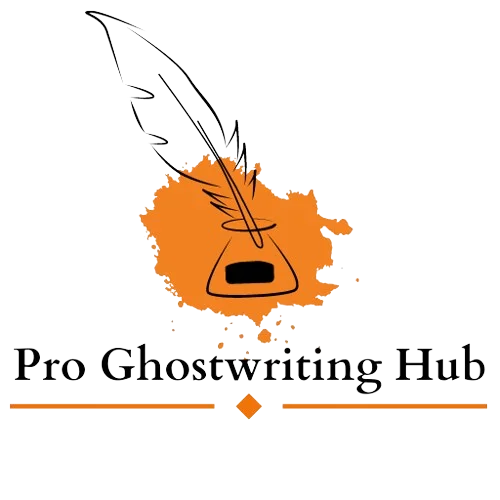How to stay organized as an author: Tools and Tips
As a new writer or someone who works with a lot of deadlines, you must have noticed tons of little details that go into writing that you have to keep track of. From conducting research to making plot points and character profiles.
Well, you have to keep track of everything in some way, right?
This is where you try to stay organized as an author.

Okay fair! It sounds like a lot of work when the only thing you should be doing is writing.
Many legends in the game, like Stephen King, have spoken about how you don’t need outlines to structure your writing and how you should simply feel the story from your gut.
While that sounds nice and romantic, you should stay organized as a writer. And here’s why:
Why it is important to stay organized as an author
Writing is as romanticized as it is perceived to be easy. The idea of an author, especially one that makes a living off writing and selling books, is a person who sits at the comfort of their home during working hours or in the comfort of a coffee shop, drinking unhealthy amounts of coffee, while being hunched before a laptop or typewriter, creating the most imaginary world you’ll ever know.
While this is definitely better than most work you can think of, there’s a lot more to it than meets the eye.
There are deadlines to be kept, editors to deal with, research to be done, plots to be managed, characters to keep track of, and just consistency to be maintained in general. The creation of a story is a continuous process that becomes more complicated as the length of the story grows. There are too many things to keep track of to a point where writing becomes overwhelming. You could write yourself into a corner. Or you could deviate from the plot without realizing. Your characters could become inconsistent as you go further. And more often than not, you’ll fail to meet deadlines.
Staying organized while you tell your story is key to making your writing process seamless and straightforward, and it helps you keep track of every detail in your process and if you want to keep to your deadlines.
You have to make sure your editors don’t come after you.
But how exactly do you make yourself more organized?
Well, here are a few tips:
Document your ideas
Ideas can come from anything and anyone at any time of the day. On some days you’ll feel inspired, and on others it might not come to you. However, if you want to ensure smooth progress of your writing without having to deal with writer’s block at any part of the journey, your best bet is to document your ideas. Or simply write them down as they come.
When you document ideas, you create a library of creative resources that is more than just imagination. You’ll have a physical record of the things that inspire and things that can push your plot forward in the most interesting ways possible.
Documenting your ideas can be tricky. You have to be ready to take notes on the go, and you have to keep them organized. A simple way to do this would be to always have a small writing pad and a pen with you all the time.
Fairly speaking, you’re a writer, and you’re expected to always have a pen and a writing pad with you all the time. But, that’s easier said than done. What if you lose the note? Or what if your dress doesn’t have pockets?
Well, my friend, modern problems require modern solutions. You can easily take notes on your phone by using Onenote on your laptop or mobile device. This would help you write down and organize your ideas in creative ways that suit your style. You could also document your ideas on Google Docs. It’s simple, fast, and efficient, and it keeps everything on a cloud so you never lose them.
Structure your research
Proper research is a grossly overlooked part of writing that the writing process can’t do without. There are so many things to write about, and so many things that can make your novel a lot better. But there’s only so little we know.
How do we bridge this gap?
By conducting proper research!
It’s inevitable. At some point or another, you’re going to find information or resources that can push your story forward. So why not plan towards it?
Your goal is to make the research process as simple and seamless as possible, and to do that, you need to first make a checklist for what you want to do to complete your research. Then keep a register of all the sources you got information from.
These can easily be done on a spreadsheet, so Microsoft Excel or Google spreadsheets would do the job nicely. You can also take notes on Onenote when you get any crazy ideas while doing your research.
However, it is important to note that you absolutely don’t have to use all the information gathered on research. Too much information can easily take you away from the plot, so only use what moves the story forward.
Get Our “Story Structure Workbook” to organize your ideas and research.
Create a writing space
The magic can’t just happen anywhere.
Can it?
To write at full efficiency, you need a place where you can focus. Where you can let your mind run free and set your creativity free into the world without any distractions.
The majority of your work will come from one place, and studies have proven that physical environments directly affect well-being and productivity. Being in a place you’re comfortable and having continuous access to said place is sure to help you move forward with your story even on days where you aren’t feeling it.
But what if you don’t have the space in your apartment? What if you can’t afford a writing room?
There are options.
You only have to choose somewhere you’re comfortable in. That place could be a coffee shop, a park, a library, or even a car. Just make sure that wherever you choose is somewhere you can go to all the time.
Create an outline.
Plotters vs. pantsers. To plot or not to plot. What will it be?
There have been so many conversations about plotting your way through a novel or diving into the story, hands tied behind your back until you get to the end.
If we’re being honest, making an outline seems to take away the fun from writing the story. The idea of it seems to make the writing process look like a school project.
And besides, why should you make an outline when the pros like Stephen King do not?
Well, if you struggle with staying organized as an author, then you should consider having an outline for your story, especially if you’re going for something around 100 thousand words.
But why should you?
First, writing a novel purely out of instinct is something the pros do. If you’re not as experienced, writing an outline at different points in your story will keep you on the right track as you make progress. Also, it organizes the process by providing you with a properly documented plan of the direction you want your story to take.
Creating an outline isn’t easy. There is no single way to go about it, but it’ll be wonderful to have maybe a whiteboard if you have the space for it, a journal or notebook, or you can create one using Scrivener.
The board will give you space to write and doodle. You’ll have a chance to see your ideas come to life on a wide screen. And if you use a journal, you can go back to it every day and add more details to the outline.
If you don’t want to go old school, you can make your plot on Scrivener. It’s an app that helps organize your books and writing in general.
Always remember when you’re making an outline; the outline is to guide you, not control you. It doesn’t restrict you, and it can change depending on what you want.
Journal your progress
You’re doing something very extraordinary. You should document it. Journaling and proper documentation of your progress will give you evidence of your progress and how far you’ve come as a writer. It will also help you figure out what things you could do differently to become better.
Most importantly, this is a good way to deal with imposter syndrome.
At some point or another, many writers will feel they’re not as good as they thought they were. This can lead to writer’s block and delayed progression of the story. But a writer who writes every day can only get better. Same goes for you. How better to remember that than a journal?
There are different ways to journal. You could use digital tools or a physical journal to keep track of your progress. I use both digital tools and a paperback to make my journals, which means that I have access to my thoughts at every moment of the day.
If you want to see what my journaling tools are like, you can easily click on the link below to gain access to my journals for free.
So those are tips and tools that can help you stay organized as an author. I hope they help you in any way, shape, or form, and I hope your writing journey is as fun and exciting as you imagined it would be.
Always remember to keep writing.







